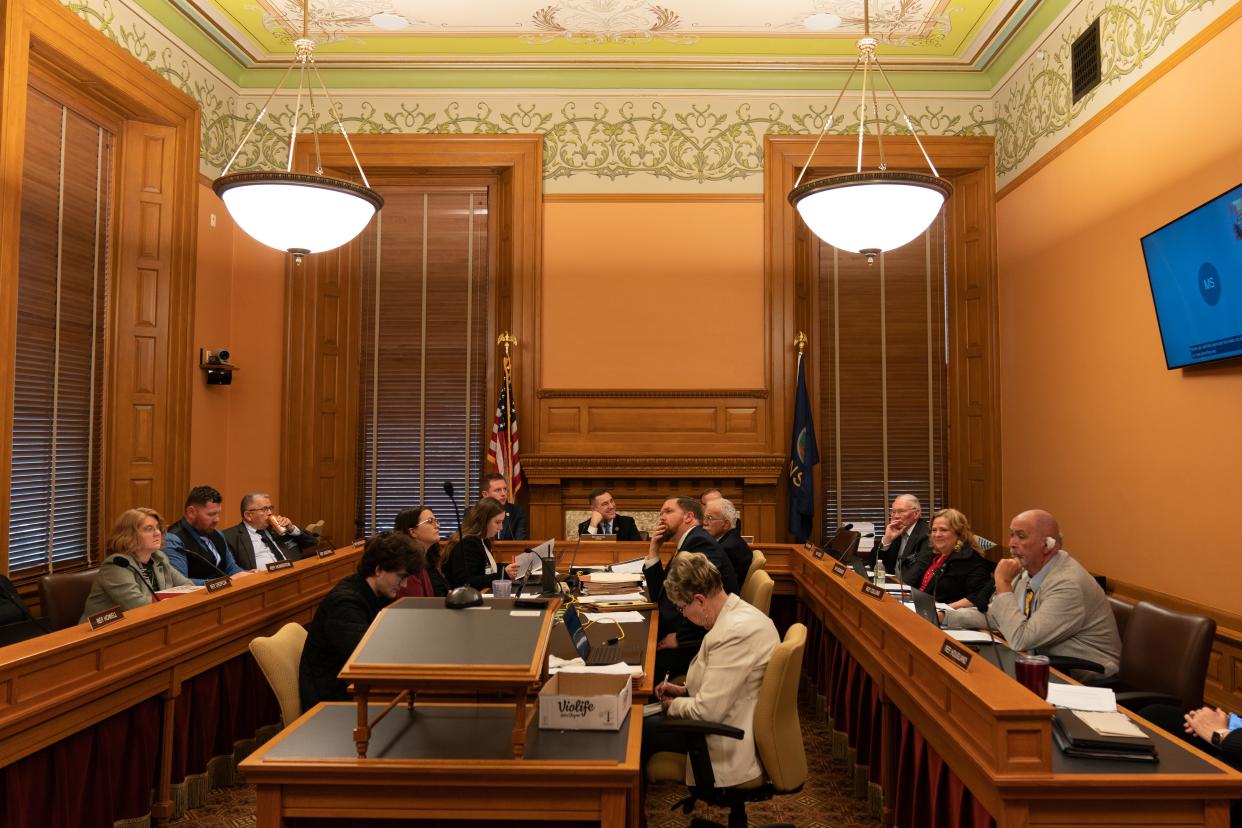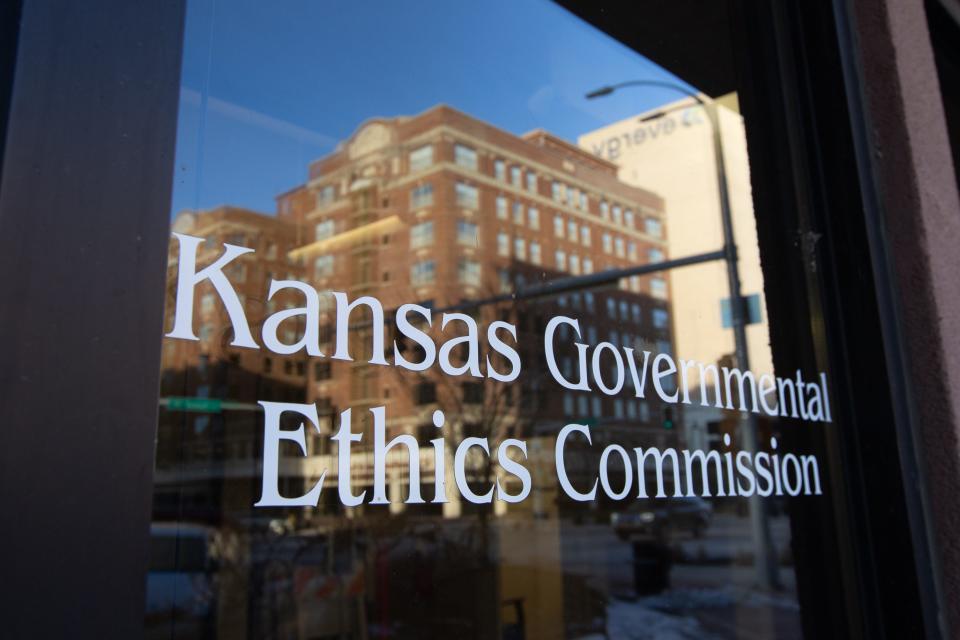Kansas lawmakers back off aggressive campaign finance overhaul. Here's what they will do.

- Oops!Something went wrong.Please try again later.
- Oops!Something went wrong.Please try again later.
Kansas lawmakers backed off a more aggressive overhaul of the state's campaign finance laws, instead opting for a more limited set of changes that focuses on the Kansas Governmental Ethics Commission's administrative procedures.
The initial bill was met with heavy resistance from the commission and its director, Mark Skoglund, who blasted it as an attempt to incinerate limits on campaign giving and effectively render powerless the state panel charged with enforcing campaign finance and ethics laws.
The proposal raised eyebrows around the Statehouse, as it comes amid an investigation into prominent legislators and state Republican Party officials, despite arguments from GOP lawmakers that the bill was unrelated to the high-profile investigation.
More:Kansas Legislature considers bill to overhaul Ethics Commission as it probes GOP officials
After prolonged negotiations, Skoglund, Gov. Laura Kelly's office and Josh Ney, an attorney who has represented clients before the commission and was often critical of its practices, said Tuesday that they reached an agreement on a modified version of the bill.
The legislation was moved out of the House Elections Committee on a unanimous vote.
Ethics Commission to support retooled version of bill

That legislation will change how the commission issues subpoenas and where the agency receives its funds, as well as attempting to increase protections for individuals appearing before the body.
"I’m not going to come out and say that I love absolutely everything in this bill, I think that is probably expected," Skoglund said. "But even though I don’t, I will say that I think there is a quite a bit of good law contained in many portions of this bill and the remainder represents a negotiated compromise that I do not oppose."
The legislation would create a five-year statute of limitations for actions before the commission, reduce the threshold required to issue a subpoena but force the document to be issued under seal and raise the bar required to establish probable cause and make charges public.
More:Lawyers allege Ethics Commission violated Kansas meetings law amid effort to oust leader
A defendant also could request a hearing before the Office of Administrative Hearings, rather than the full commission.
It would also raise fees for political committees in Kansas, a move designed to make the Ethics Commission's budget less reliant on fines, which would be capped under the proposal.
And the bill would allow legislators safe harbor to solicit campaign contributions during session, provided they include a disclaimer that they are not intending to receive donations from lobbyists, which would remain a violation of campaign finance laws.
Will Lawrence, Kelly's chief-of-staff, told lawmakers that the provisions were "good reasonable law that can be implemented," an indication the governor would sign the bill. Kelly told the Kansas City Star last month that the original bill was "very bad optics."
Larger changes to be deferred until after Ethics Commission deep dive
The original bill would have meant more expansive changes to the state's campaign finance law, legalizing activities the agency is believed to be examining as part of its investigation, such as coordination between campaigns and political committees.
Skoglund blasted the provisions as "brazen," "arrogant," and "sad" in the initial bill hearing and was similarly critical of a revised version unveiled earlier this month.
Rep. Pat Proctor, R-Leavenworth, chair of the House Elections Committee, said at the time said he was committed to further altering the bill to win support and the final product was hashed out last week.
The bill is intended to defer conversations about more substantial change to a committee expected to be formed following the 2023 session, with recommendations to be delivered for lawmakers to consider next year.
That includes how key definitions are laid out in the Campaign Finance Act and what changes might mean for candidates, campaigns and regulators.
Ney said it was imperative that legislators do a thorough review of the issues to determine a way forward on what the state's campaign finance laws should look like.
"I’m not saying how to do it. I’m saying it has to happen," he said.
Proctor said: "This was never about getting the Ethics Commission. This was never about making them the enemy."
"I would much rather have them as part of the conversation. ... That's what we were trying to do before all this blew up," Proctor told reporters.
The fight over the Ethics Commission investigation has become increasingly public.
More:Kansas Republicans tried to oust ethics head amid subpoenas. Will they try again?
Copies of subpoenas show the investigation was expanded to examine the potential involvement of top Kansas Senate and House lawmakers and staff, other county Republican Party officials and political campaign consultants.
Attorneys for the parties subpoenaed have decried the investigation in court proceedings as nothing more than a fishing expedition that would not amount to anything and have sought to get the subpoenas tossed out for being overly broad.
Instead, Ney and other allies have pointed to an array of cases where they believe due process rights of accused groups and individuals were infringed upon. The bill, he said, takes steps to address that.
But while Rep. Brandon Woodard, D-Lenexa, the top Democrat on the House Elections Committee, said he was pleased to have found a compromise, he also raised concerns with how that final product came about.
"Unfortunately, sometimes that is how the sausage gets made in Topeka," Woodard told reporters. "I think we went from a very unprofessional start to getting people to start acting like the adults in the room. Because of that we got to a product that everyone was able to support."
This article originally appeared on Topeka Capital-Journal: Kansas Legislature finds deal on key changes to Ethics Commission

